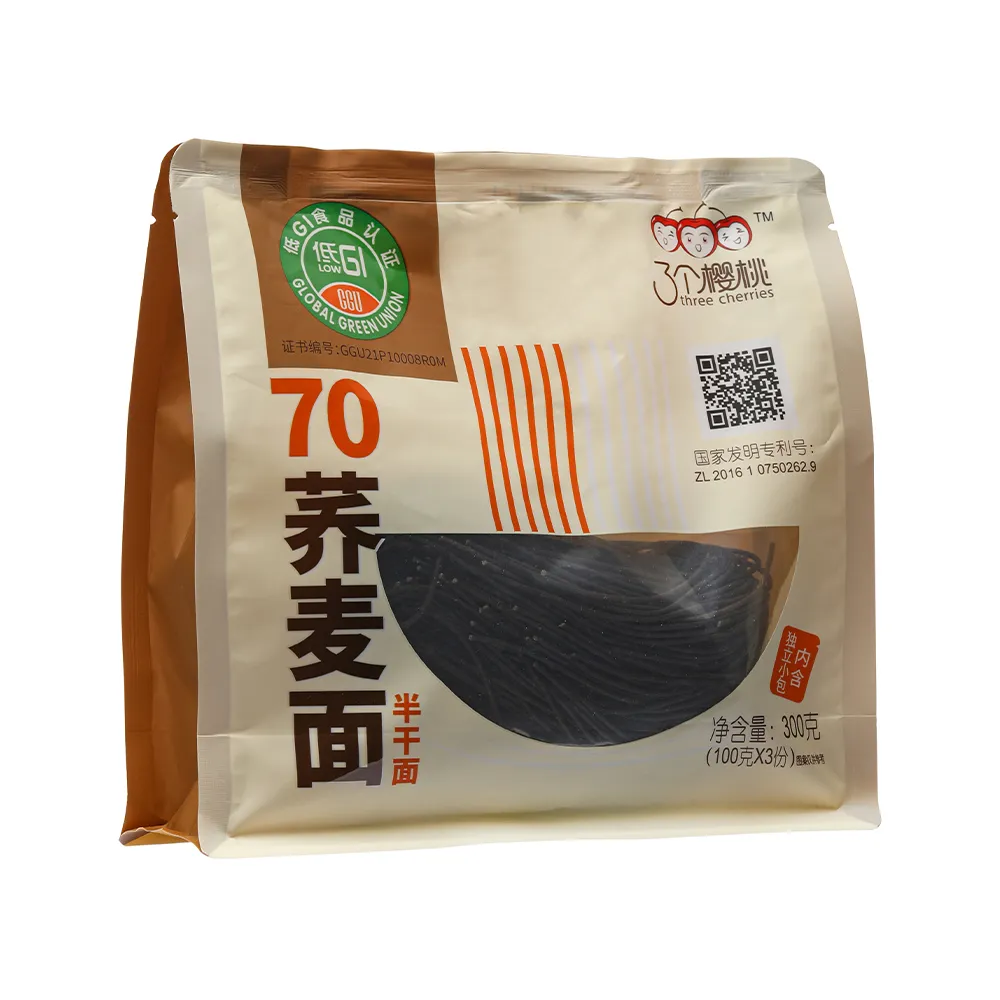Are Soba Noodles a Low Glycemic Index Option for Healthy Eating?
Are Soba Noodles Low GI? A Deep Dive into Their Health Benefits
Soba noodles, a traditional Japanese food made primarily from buckwheat flour, have gained considerable popularity worldwide, especially among health-conscious individuals. With the increasing focus on low glycemic index (GI) foods, many people wonder whether soba noodles fit into this category. This article will explore the glycemic index of soba noodles and the potential health benefits they offer.
Understanding Glycemic Index (GI)
Before evaluating soba noodles, it’s essential to understand what glycemic index means. The GI is a measure that ranks foods according to their effect on blood sugar levels. Foods with a low GI (55 or lower) are digested and absorbed more slowly, resulting in a gradual rise in blood sugar. Low GI foods are considered beneficial for maintaining stable energy levels, controlling hunger, and reducing the risk of various health conditions, including type 2 diabetes and heart disease.
Soba Noodles and Their GI Value
When discussing the GI of soba noodles, there are a few factors to consider, such as the specific type of soba noodle and its preparation. Generally, authentic buckwheat soba noodles have a GI rating that ranges from 30 to 50, making them a low GI food. This means they can effectively promote steady energy levels and are less likely to trigger sharp spikes in blood sugar compared to high-GI foods like white pasta or white bread.
However, it is crucial to note that the GI can vary based on the percentage of buckwheat flour used in the noodles. Some commercially available soba noodles may contain a blend of buckwheat flour and wheat flour, which can increase their GI. Therefore, it's important to look for 100% buckwheat soba noodles to maximize the health benefits.
Nutritional Profile of Soba Noodles
Soba noodles are not only low in GI but also come with an impressive nutritional profile. They are rich in protein, fiber, vitamins, and minerals. A traditional serving of soba noodles provides a significant amount of manganese, selenium, and B vitamins, particularly thiamine and riboflavin. The high fiber content, coupled with the low GI index, helps in promoting healthy digestion and preventing constipation.
Moreover, the presence of buckwheat, which is a seed rather than a grain, means that soba noodles are gluten-free. This makes them an excellent choice for individuals with gluten sensitivities or those looking to reduce gluten in their diets.
are soba noodles low gi

Health Benefits of Soba Noodles
1. Stabilizing Blood Sugar Levels The low GI of soba noodles can aid in managing blood sugar levels, making them an excellent choice for those with diabetes or anyone looking to maintain stable energy throughout the day.
2. Weight Management Foods that are high in fiber and low in GI significantly contribute to satiety. Soba noodles can help curb hunger and prevent overeating, making them beneficial for weight management.
3. Heart Health Eating soba noodles can contribute to heart health due to their potential to lower bad cholesterol levels (LDL) while boosting good cholesterol (HDL). The antioxidants present in buckwheat, including rutin, may help reduce blood pressure and promote healthy circulation.
4. Digestive Health The fiber content in soba noodles promotes a healthy digestive system, preventing constipation and maintaining gut health. Fiber also supports the growth of beneficial gut bacteria.
How to Incorporate Soba Noodles into Your Diet
Incorporating soba noodles into your meals is easy and versatile. They can be served hot or cold and paired with a variety of ingredients. A simple soba noodle salad with vegetables, sesame dressing, and protein sources like tofu or chicken makes for a nutritious meal. Alternatively, soba noodles can be added to soups, stir-fries, or even used as a base for noodle bowls.
Conclusion
Soba noodles not only provide a low GI option but are also packed with essential nutrients and health benefits. When choosing soba noodles, opt for those made entirely from buckwheat to enjoy their full advantages. Whether you are looking to stabilize your blood sugar, maintain a healthy weight, or simply enjoy a delicious meal, soba noodles can be a nutritious addition to your diet. As culinary and health trends evolve, soba noodles remain a contemporary staple that bridges traditional food with modern health needs.
-
Unlock the Delicious Potential of Yam NoodlesNewsAug.11,2025
-
The Authentic Taste of Lanzhou NoodlesNewsAug.11,2025
-
Savor the Art of Hand Pulled NoodlesNewsAug.11,2025
-
Indulge in the Timeless Delight of Spaghetti BologneseNewsAug.11,2025
-
Indulge in the Rich Flavor of Braised Beef NoodlesNewsAug.11,2025
-
Elevate Your Meals with the Magic of Fresh PastaNewsAug.11,2025
-
Unleash Your Inner Chef with Delectable Italian Pasta CreationsNewsAug.01,2025
Browse qua the following product new the we

















































































































